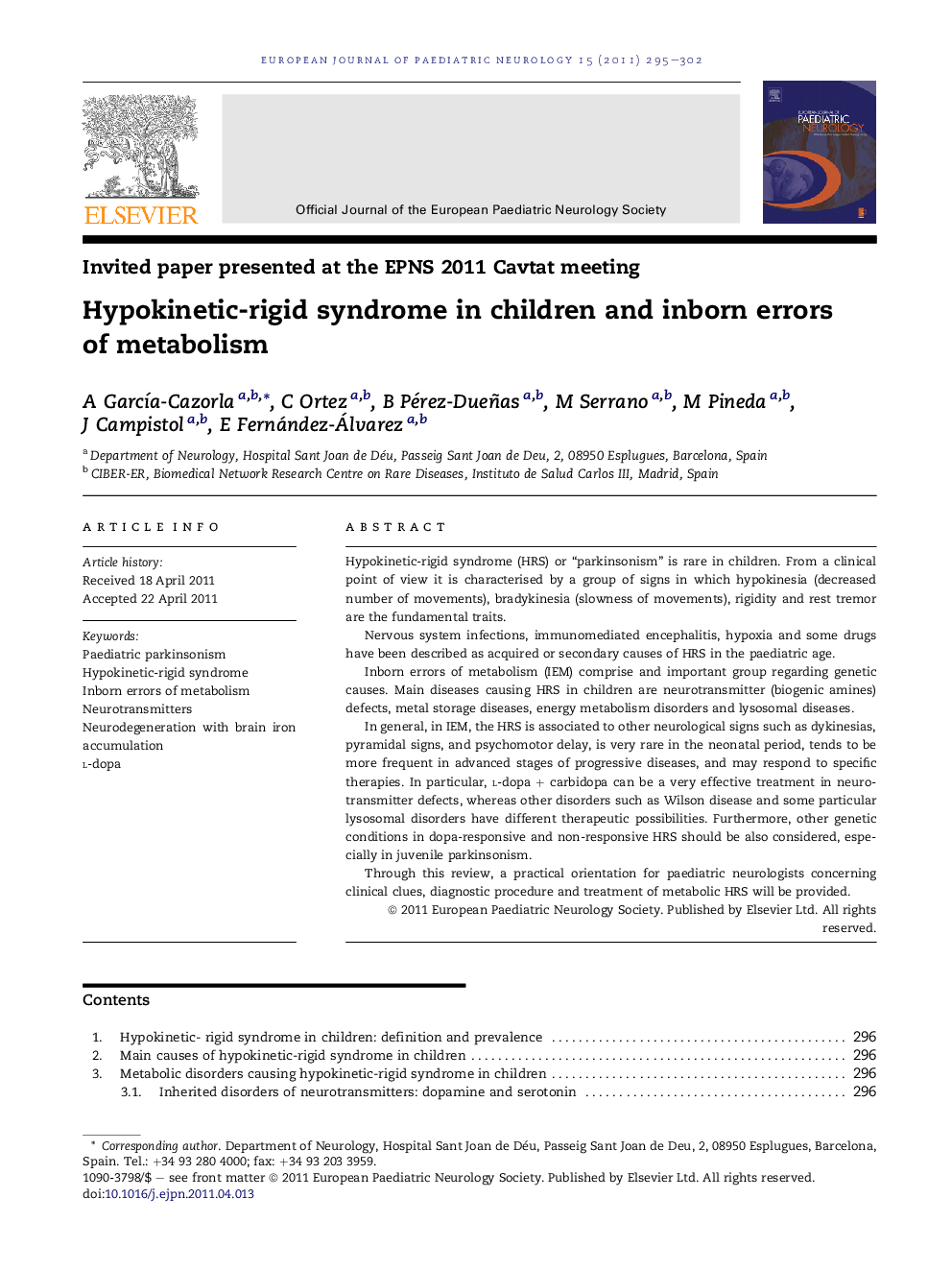| Article ID | Journal | Published Year | Pages | File Type |
|---|---|---|---|---|
| 3054448 | European Journal of Paediatric Neurology | 2011 | 8 Pages |
Hypokinetic-rigid syndrome (HRS) or “parkinsonism” is rare in children. From a clinical point of view it is characterised by a group of signs in which hypokinesia (decreased number of movements), bradykinesia (slowness of movements), rigidity and rest tremor are the fundamental traits.Nervous system infections, immunomediated encephalitis, hypoxia and some drugs have been described as acquired or secondary causes of HRS in the paediatric age.Inborn errors of metabolism (IEM) comprise and important group regarding genetic causes. Main diseases causing HRS in children are neurotransmitter (biogenic amines) defects, metal storage diseases, energy metabolism disorders and lysosomal diseases.In general, in IEM, the HRS is associated to other neurological signs such as dykinesias, pyramidal signs, and psychomotor delay, is very rare in the neonatal period, tends to be more frequent in advanced stages of progressive diseases, and may respond to specific therapies. In particular, l-dopa + carbidopa can be a very effective treatment in neurotransmitter defects, whereas other disorders such as Wilson disease and some particular lysosomal disorders have different therapeutic possibilities. Furthermore, other genetic conditions in dopa-responsive and non-responsive HRS should be also considered, especially in juvenile parkinsonism.Through this review, a practical orientation for paediatric neurologists concerning clinical clues, diagnostic procedure and treatment of metabolic HRS will be provided.
